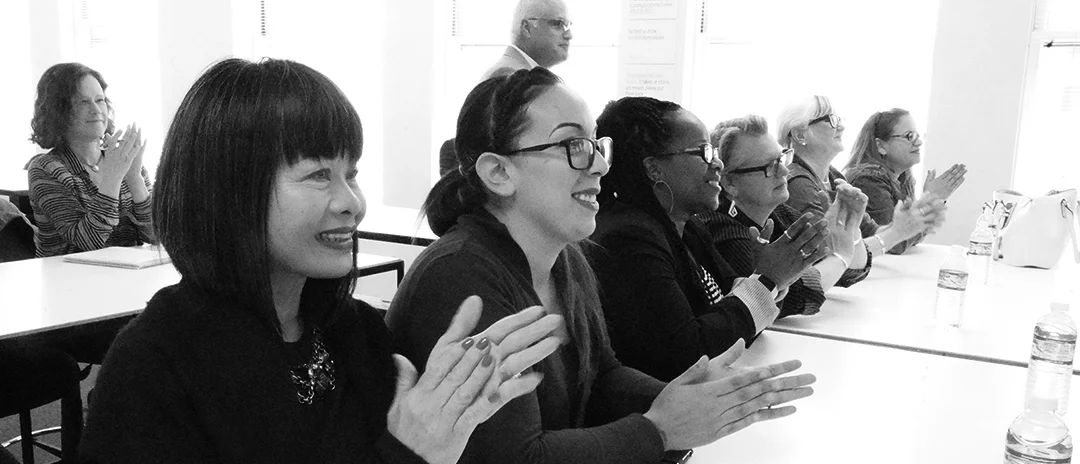On a recent Wednesday afternoon, Nelly Vasquez was volunteering to help undocumented families register so they could participate in a grocery distribution program at The Mission Food Hub, a Latino task force resource hub, in San Francisco. For people with extenuating circumstances who are unable to make it to the hub, like seniors, people in recovery from COVID-19, disabled and others who are sick or have health challenges, the food pantry offers limited delivery services.
But on this day, while helping to register an elderly gentleman who was in line for a box of nutritious and comforting staples like oatmeal, beans, milk, fresh produce and frozen chicken or protein cuts, she observed that the man seemed especially confused and his arms and legs were jerking. But with a mask and sunglasses covering his eyes, it took Vasquez a second or two to realize what was unfolding.
“Are you okay?,” she asked, her first instinct thinking he was having a stroke. When he fell to the floor, Vasquez jumped into action, pushing him on his side and calling 911. She stayed at the man’s side until the paramedics arrived, assuring him it would all be okay.
“At first I thought he was upset because he had told me he wasn’t working and was undocumented and was afraid to register,” she says. “Then I realized he was having a seizure. When the paramedics arrived, he refused service because he was afraid because he is undocumented,” says Vasquez, 36, who was volunteering at the food distribution center on her day off from her full-time post as a TAY In Custody Case Manager/Facilitator. “He told me he had epilepsy but couldn’t afford to take his meds. He was incredibly grateful and thankful and kept saying he was so sorry.”
Though her colleagues at Five Keys are calling her efforts heroic, Vasquez says caring is all in her line of duty. The Mission Food Hub is an organization whose mission is closely aligned with Five Keys and the shared mission to care for the vulnerable in the greatest need.
“Nelly was there to support him to make sure he was OK until the paramedics showed up,” says Joanna Hernandez, Alameda County Director of Re-entry, Northern California. “The Latino Task Force Executive Team wanted me to send an email thanking her for her help, support, and patience during an incredibly stressful time. Thank you Nelly!”
For Vasquez, a mother of a five-year-old, supporting 18-to-24-year-olds who are enrolled in case management and resilience programming who are in custody in jail is work she says she feels very passionately about. For the last four years, she has been a TAY In Custody Manager/Facilitator for Five Keys, working at the San Francisco County Jail in the downtown area, and most recently at the San Francisco County Jail #3 in San Bruno, which houses up to 768 people and is the largest facility under the jurisdiction of the City and County of San Francisco’s Sheriff’s Department.
Growing up in San Francisco, she says she stumbled off her path for a while as a teen, got into trouble, and owes her second chance to those who reached out to help her.
Now, she’s committed to other young adult offenders offering care, and not punishment, emphasizing emotional support and helping them to address the issues that will prevent them from a cycle of committing more crimes and instead of helping them become citizens making a difference.
These days, thanks to the COVID-19 pandemic, she says it is a little more challenging to meet with the young adults she wants to help. Most of her clients are young men who have been involved in gang activity and their offenses range from drug use and theft to assault and murder.
Through a window in the lobby of the jail, (she used to be able to work with the young people in person in their units), Vasquez works with a caseload of 25 to 30 people, checking in on them, asking how they are doing, when they are going to court, and advocating for them through the process.
“It’s hard because our jails are filled with Black and Latino men who sometimes just made terrible mistakes,” she says. “I hope to be part of a system that gives them a second chance, rehabilitates them so that they can turn their lives around.”
The lesson she is learned in her role: “Never give up on people. Everyone just wants to be treated like a human being and they deserve to be given a chance to start over.”
What is most rewarding for her are the people she has worked with who she bumps into on the streets of San Francisco.
“I encounter a ton of people in my job, and it is super rewarding to be walking through the city and have someone stop me to say ‘thank you,’ that I made a difference in their life,” says Vasquez.








